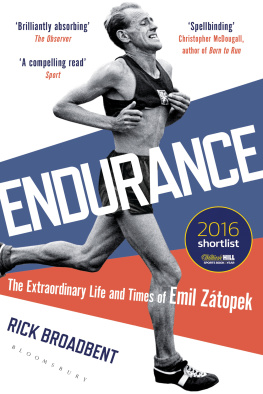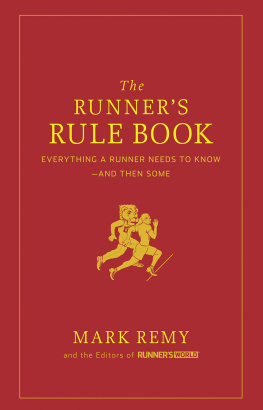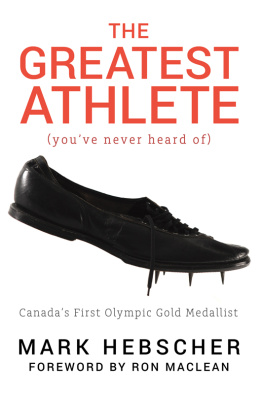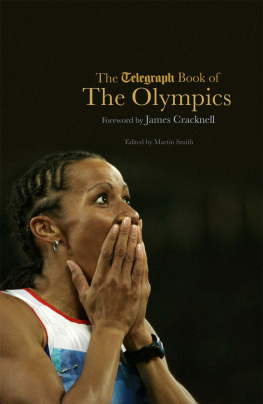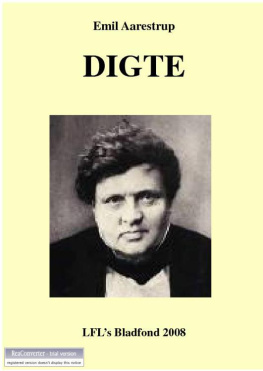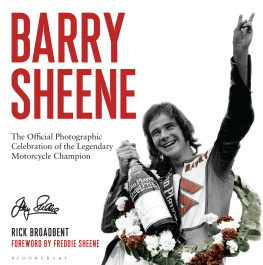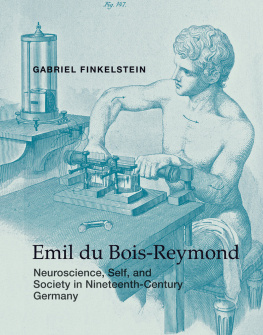Rick Broadbent - Endurance: The Extraordinary Life and Times of Emil Zátopek
Here you can read online Rick Broadbent - Endurance: The Extraordinary Life and Times of Emil Zátopek full text of the book (entire story) in english for free. Download pdf and epub, get meaning, cover and reviews about this ebook. year: 2016, publisher: Bloomsbury Publishing, genre: Non-fiction. Description of the work, (preface) as well as reviews are available. Best literature library LitArk.com created for fans of good reading and offers a wide selection of genres:
Romance novel
Science fiction
Adventure
Detective
Science
History
Home and family
Prose
Art
Politics
Computer
Non-fiction
Religion
Business
Children
Humor
Choose a favorite category and find really read worthwhile books. Enjoy immersion in the world of imagination, feel the emotions of the characters or learn something new for yourself, make an fascinating discovery.
- Book:Endurance: The Extraordinary Life and Times of Emil Zátopek
- Author:
- Publisher:Bloomsbury Publishing
- Genre:
- Year:2016
- Rating:4 / 5
- Favourites:Add to favourites
- Your mark:
Endurance: The Extraordinary Life and Times of Emil Zátopek: summary, description and annotation
We offer to read an annotation, description, summary or preface (depends on what the author of the book "Endurance: The Extraordinary Life and Times of Emil Zátopek" wrote himself). If you haven't found the necessary information about the book — write in the comments, we will try to find it.
A runner must run with dreams in his heart. Emil Zatopek.
In the summer of 1952 Emil Zatopek became the king of the running world with an unprecedented distance treble at the Olympic Games in Helsinki. Together with his wife Dana, who won another gold medal in the javelin, they were the embodiment of sporting romance. Born on the same day, they were champions on the same day too. Yet in 1968 this affable but eccentric Czech solider was betrayed by his Communist paymasters and cast out into wilderness. Hidden from world view, monitored by the secret police and forced to live in a caravan in mining country, he became the invisible hero. Endurance is the first biography to document the remarkable rise, fall and rehabilitation of a man voted the greatest runner of all time by Runners World in 2013.
It is also the story of a golden age of sport played out against a backdrop of Cold War politics and paranoia. From the London Olympics of 1948 to Czech concentration camps, this is an uplifting and harrowing story of survival. As Emil rises to global fame, his old coach is locked up and tortured by StB henchmen. Their diverging paths expose the fickleness of popularity and eventually cross again when Zatopeks world is torn asunder. All both men can do is endure.
The running world of this era is brought to life by dramatic accounts of Zatopeks great triumphs, manifold records and a rich collection of characters vying to dethrone him. In Britain the sharp-tongued Gordon Pirie falls foul of the media as he becomes obsessed with Zatopek and adopts increasingly-masochistic methods; mild-mannered marathon champion Jim Peters begins a quest that would make women weep and grown men lose their lunch. In France Alain Mimoun crawls from the bloody carnage of his war-time exploits to overcome racial snubs and become known as Zatopeks Shadow; and in the Soviet Union, the tragic figure of Vladimir Kuts is moulded into a brutal running machine at huge cost. Only Zatopek manages to bridge this East-West divide as a savage power struggle is fought in both the Olympic arena and in the corridors of power.
Due to extensive access to those involved, including Dana herself, award-winning Times author Rick Broadbent has written a vivid history involving blood and guns and a love that sustained the cruellest twists of fate. From heady nights at White City to the brave resistance during the Prague Spring, this is a book that plants the son of a carpenter at the very centre of a revolution. Whether talking to his rivals on the track or Red Army troops as tanks roll into Prague, Zatopeks humanity shines through and carries all.
With traces of Chariots of Fire and Laura Hillenbrands Unbroken, Endurance is both a wonderful love story and a landmark tale of hope and strength in the face of crushing opposition.
Its at the borders of pain and suffering that the men are separated from the boys. Emil Zatopek
Rick Broadbent: author's other books
Who wrote Endurance: The Extraordinary Life and Times of Emil Zátopek? Find out the surname, the name of the author of the book and a list of all author's works by series.

